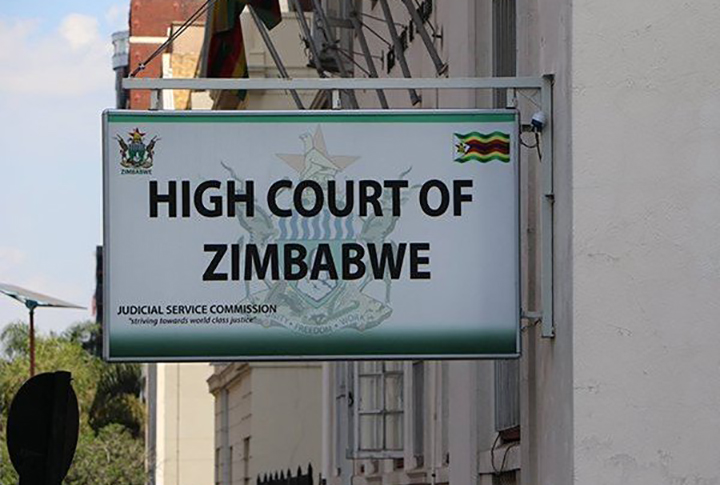HARARE – The High Court has ordered the immediate release of Congolese refugee, Kabamba Kibukile, who was jailed 20 years by a local magistrate who had found him guilty of raping an eight month-old baby in 2016.
Kibukile, 42, had already served six years when he successfully filed an appeal against his conviction and sentence.
Judges of appeal, Justices Benjamin Chikowero and Bongani Ndlovu freed Kibukile following what they found to have been a fatal technical error by the lower court which accepted evidence which partially diverted from that reflected in the state outline.
The judges noted that Kibukile could have committed the offence but the state’s case was in shambles.
The State outline said the mother had left to fetch some water while the infant lay asleep on the bed when Kibukile arrived at the house.
Prosecutors said he entered the house through the open door.
Once inside the bedroom, he lifted the baby from the bed, removed her pampers and placed her on his lap while still on his feet.
The state further alleged Kibukile unzipped his trousers and raped the baby unbeknown to him that all this was in full view of the sister who was hiding behind the door.
However, in her evidence, the sister who was a minor, said she witnessed the crime while peeping through the window.
“The duo’s evidence differs from the State outline in a fundamental respect,” ruled the High Court.
“That contradiction, which was never explained, gives a totally different complexion to the matter.
“The version in the State outline speaks to the appellant stealthily accessing the bedroom and committing the offence under the full glare of the sister.
“Neither the public prosecutor nor the trial court sought an explanation for the fundamental contradiction between the evidence of the State witnesses and the outline of the State case.”
The judges also said the lower court erred in convicting Kibukile without hearing the evidence of the doctor who submitted a report full of technical jargon which was never interpreted.
“The external examination also shows bruises on the external female genitalia and that the labia majora and labia minora were grossly swollen.
“The doctor’s handwriting is not clear. He writes; ‘blood onsbin’.
“We do not know what the underlined word means. On whether the hymen was oestrogenised, the doctor ticked ‘no’.
“Similarly, on whether the hymen was attenuated or stretched the doctor again ticked ‘no’.
“Read as a whole, the medical report tends to support the appellant’s defence that the baby fell from the bed. It seems that the baby fell face down.”
Kibukile was convicted after a full trial during which he denied the allegations.
The evidence accepted by the lower court was that Kibukile abused the baby who had been put to bed by her mother while naked.
Kibukile is an uncle to the victim’s mother.
On the unfortunate day, he visited the family and found the mother bathing the baby while seated by the verandah.
The mother finished and wrapped the baby in a towel.
The baby fell asleep in its mother’s arms before she could dress it up.
She then took the baby to the bedroom and then left to fetch some water at a nearby borehole. Kibukile left the place at the same time.
Prosecutors proved that 15 minutes later, the baby’s sister went running to the borehole, informing her mother that Kibukile was beating the baby and she was crying.
The mother rushed home only to find Kibukile holding her baby who was bleeding from her mouth and privates.
It was alleged that Kibukile kept holding on to the baby despite the mother’s pleas for him to hand over the child to her.
He only released the baby following the intervention of community members.
Neighbours assaulted Kibukile who was also arrested for rape.
It was his defence that the baby sustained injuries after falling down.
He also insisted that he had in fact rescued the baby after it fell from the bed.
The medical affidavit confirmed face bruises and swollen genitals.
However, the High Court said there were two different versions setting out the circumstances in which the offence was said to have been committed.
“The conviction is quashed and the sentence set aside. The following is substituted: ‘the accused is found not guilty and is acquitted’” ruled the judges.
















